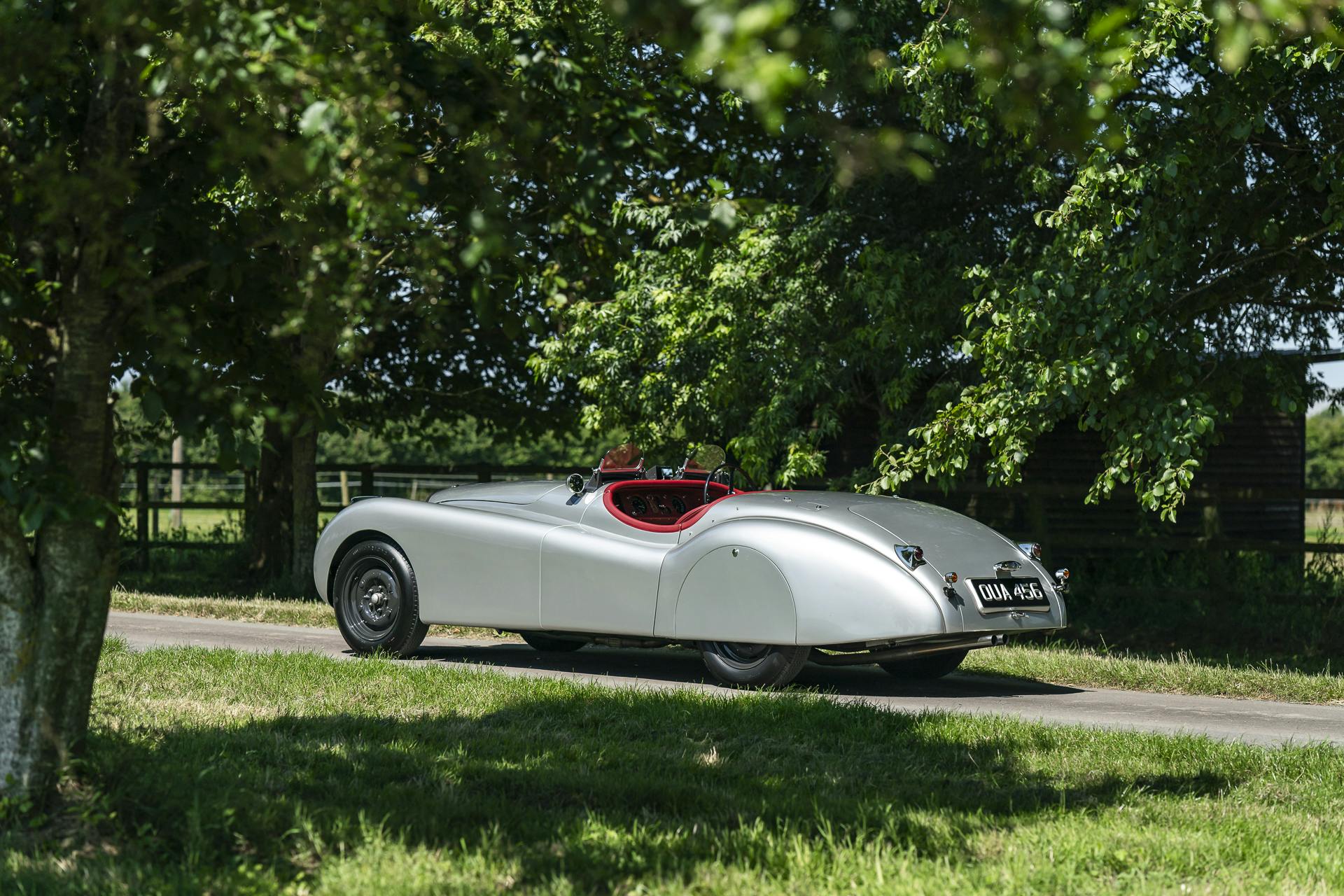1951 Jaguar XK 120 Open Two Seater

Model History
The Jaguar XK120 Roadster, is arguably one of the most beautiful and iconic looking cars in history. To be such, one would imagine Sir William Lyons, founder of Jaguar and his team, agonising over every curve and detail when designing the car. The reality was that when the 1948 London Motor Show was looming and Jaguar needed a car to showcase their new 3.4 Litre DOHC straight-six engine, this sleek and graceful Open Two Seater was what they conjured up in a hurry! Unsurprisingly, the reaction was huge and the XK120 took Jaguar to new heights as one of the premium sports car manufacturers in the post war world. It wasn’t all about looks either, the "120" in its name indicated its top speed of 120 mph, which made it the fastest production car in the world at the time.
When the first production cars were built in 1949, the Open Two Seater was the only body style available. Interestingly, the first 242 cars were fitted with lightweight bodies made of aluminium. After that first batch, Jaguar changed the body for steel for mass production. In 1951 a fixed-head coupe (FHC) was introduced, and the drop-head coupe (DHC), arrived in 1953.
Motorsport was a natural place for such a quick car and would also serve as a great base from which to develop the cars and future models. The XK120 won it’s first race in a One Hour race at Silverstone in 1949. In 1950, six of the lightweight, alloy bodied cars were allocated to top drivers of the day to campaign and get Jaguar on the map. This included entries at the 24 Hours of Le Mans, where brake issues meant that the drivers of the lead car had to use the gears to slow the car down and this ultimately lead to gearbox failure in the 21st hour, when it was running at a pace that would have resulted in victory. The two other factory cars managed 12th and 15th overall, which is no mean feat and convinced both Lyons and his chief engineer, William Heynes to invest in success at Le Mans. This proved to be a sound decision as Jaguar went on to win Le Mans in 1951, 1953, 1955, 1956 and 1957.